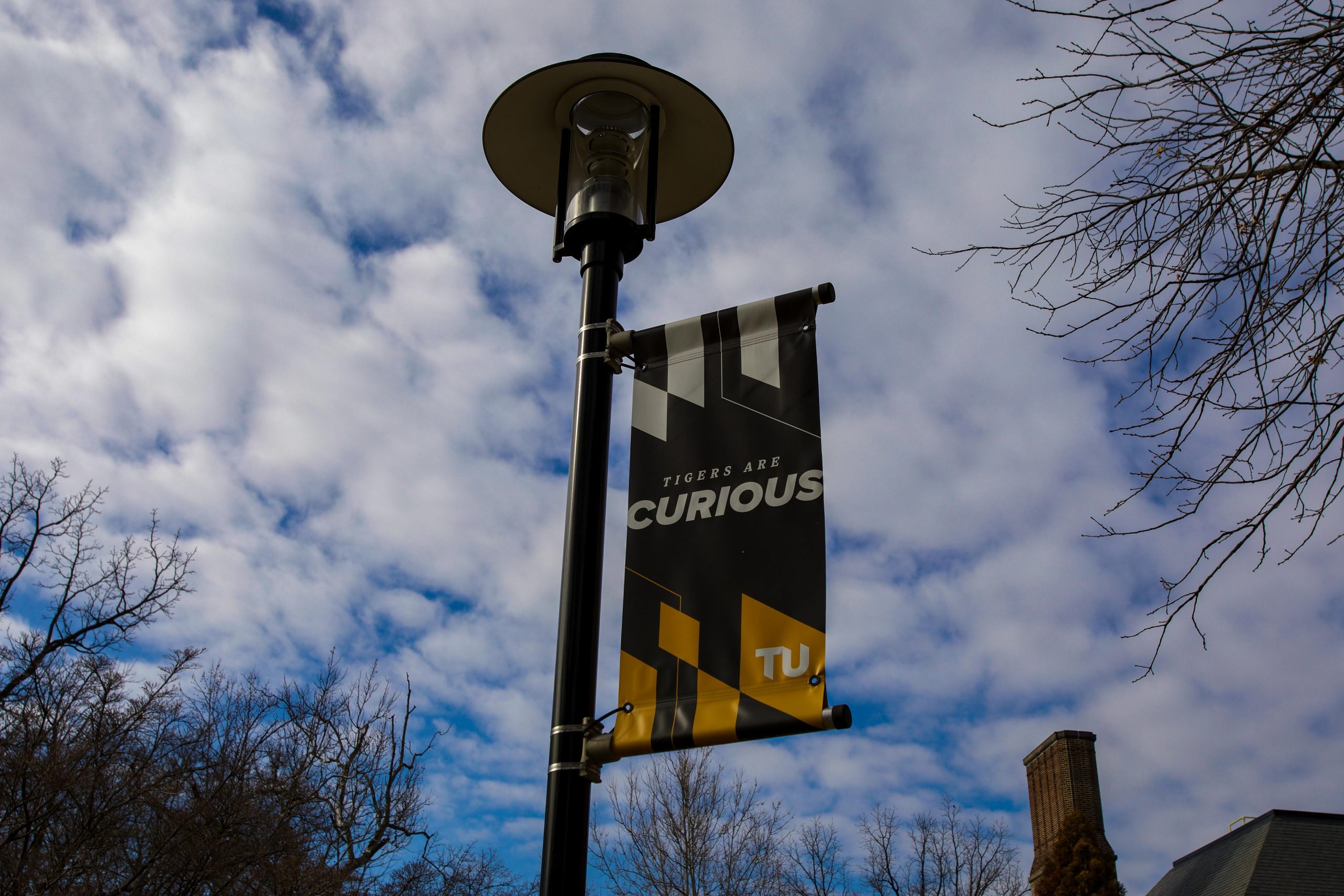
Amid attacks on higher education, Towson faculty wonder what it means for academic freedom
By Sarah Sternhagen, Editor-in-Chief
For over a decade, Towson University Professor Elyshia Aseltine has taught classes on how race factors into the American criminal justice system. Now, she’s watching as the executive orders aimed at institutions of higher education come out. She and several of her colleagues worry their work could become a possible target for the Trump administration during its barrage against colleges, and what that means for their academic freedom.
Since President Donald Trump took office his administration has accused prominent colleges of promoting antisemitism and other unlawfulness, leading federal agencies to cut grant funding to these institutions. Towson had a $5 million teacher training grant cut, but it didn’t receive threats to change course content to get the funding back, unlike larger schools that receive federal funding into the billions.
Yet, Towson professors are particularly concerned about what this assault could mean broadly for academic freedom, which is the ability to teach and research without government interference.
That right has never been challenged before.
“What is this going to mean ultimately for my teaching, for my department?” Aseltine said.
The very core of what she teaches–race and how it factors into the American criminal justice system–could fall under the wide umbrella of diversity, equity and inclusion programs the Trump administration wants to end. Aseltine sees the discussion of race in the criminal justice system as necessary.
“You can’t capture people’s real lived experiences with the criminal justice system effectively without capturing some of the differences that exist between people,” Aseltine said.
Towson is already under investigation from the Department of Education over alleged Civil Rights violations for partnering with The PhD Project, a non-profit that aims to diversify the workforce by helping people from underserved communities earn business degrees.
A $5 million teacher training grant Towson received in 2024 was also terminated because the Education Department claimed it trained teachers in “divisive ideologies.” For political science Professor Johnanth Hensley, that grant money is a type of academic freedom.
“It means having the freedom to essentially research whatever I want to as long as it’s within my area of knowledge, within my disciplinary area,” Hensley said.
That grant, and even all the federal grants Towson receives combined, are nowhere near close to the $400 million in grants canceled at Columbia or the $2 billion at Harvard University that the Trump administration cut. To get the funding back, the administration’s demands range from changing hiring and admission policies, shuttering DEI programs, to reforming courses deemed antisemitic.
Hensley studies constitutional law and draws a parallel between academic freedom and freedom of speech.
“There’s clearly a relationship to freedom of speech,” Hensley said. “But it’s also somewhat different.”
Hensley said academic freedom can also apply to larger entities, like the university or a department’s ability to choose what course material is taught. So, there are limitations to course content, but those limits are put on by individual schools or departments, if ever.
“There’s never been a moment where I’ve had the university, or kind of anybody in leadership say you can’t publish about this or you can’t teach about that,” Professor Aseltine said.
Aseltine received pushback from fellow faculty members years ago on whether or not she should get involved with current events on campus. It ranged from discouragement to impacting peer reviews, but it was never the majority, it was never administration, and it was never over what she taught.
Professor Nicole Fabricant is one of Aseltine’s colleagues in the anthropology department and gets a similar impression from university officials.
“I haven’t felt any pressure from my colleagues,” Fabricant said about influence to change course material recently. “But I do think right now there’s a lot of fears around the administrators kind of protecting themselves and universities.”
Towson President Mark Ginsberg joined what is now over 640 higher education leaders in signing a letter condemning “political interference” in higher education by the Trump administration. It’s been the only so-called statement Towson has made so far about the government’s attacks on higher education.
Professor Kimberly Katz said she feels like the federal investigations are an attempt to make faculty self-censor themselves.
“It’s intended to harm that and in doing so, it harms higher education across the country,” Katz said. She linked how job security and the lack of tenure for part-time faculty can impact whether professors start self-censoring. “If people can lose their job for what they say, it chills academic freedom. It chills freedom of speech in the country.”
Anthropology Professor Samuel Collins also keeps that censorship in the back of his mind.
“It certainly has made me more conscious of what I’m teaching, a little paranoia and stuff, but I haven’t changed anything,” Collins said.
Since anthropology is the study of human societies and culture, Collins must address racial injustice in his classes.
“If I was to change all this stuff, I wouldn’t really be teaching anthropology anymore,” he said.
Towson is currently pursuing a legal battle against the Education Department for the canceled teacher training grant and the University System of Maryland, which Towson is a part of, is also challenging the administration’s cancellation of international student visas.
“It’s not at our doorstep in the same way as other places,” Aseltine said. “You’re kind of crossing your fingers and hoping the university does the right thing when the time comes.”
